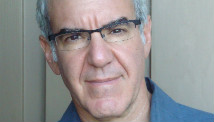LAUSANNE, Switzerland (AP) — For wrestling, this may have been the ultimate body slam: getting tossed out of the Olympic rings.
The vote Tuesday by the IOC's executive board stunned the world's wrestlers, who see their sport as popular in many countries and steeped in history as old as the Olympics themselves.
While wrestling will be included at the 2016 Olympics in Rio de Janeiro, it was cut from the games in 2020, which have yet to be awarded to a host city.
2004 Olympic Greco-Roman champion Khasan Baroev of Russia called the decision "mind-boggling."
"I just can't believe it. And what sport will then be added to the Olympic program? What sport is worthy of replacing ours?" Baroev told the ITAR-Tass news agency. "Wrestling is popular in many countries — just see how the medals were distributed at the last Olympics."
American Rulan Gardner, who upset three-time Russian Olympic champion Alexander Karelin at the Sydney Games in an epic gold-medal bout known as the "Miracle on the Mat," was saddened by the decision to drop what he called "a beloved sport."
"It's the IOC trying to change the Olympics to make it more mainstream and more viewer-friendly instead of sticking to what they founded the Olympics on," Gardner told The Associated Press in a telephone interview from Logan, Utah.
The executive board of the International Olympic Committee reviewed the 26 sports on its summer program in order to remove one of them so it could add one later this year. It decided to cut wrestling and keep modern pentathlon — a sport that combines fencing, horse riding, swimming, running and shooting — and was considered to be the most likely to be dropped.
The board voted after reviewing a report by the IOC program commission report that analyzed 39 criteria, including TV ratings, ticket sales, anti-doping policy and global participation and popularity. With no official rankings or recommendations contained in the report, the final decision by the 15-member board was also subject to political, emotional and sentimental factors.
"This is a process of renewing and renovating the program for the Olympics," IOC spokesman Mark Adams said. "In the view of the executive board, this was the best program for the Olympic Games in 2020. It's not a case of what's wrong with wrestling; it is what's right with the 25 core sports."
According to IOC documents obtained by the AP, wrestling ranked "low" in several of the technical criteria, including popularity with the public at the London Games — just below 5 on a scale of 10. Wrestling sold 113,851 tickets in London out of 116,854 available.
Wrestling also ranked "low" in global TV audience with a maximum of 58.5 million viewers and an average of 23 million, the documents show. Internet hits and press coverage were also ranked as low.
NBC, which televises the Olympics in the U.S., declined comment.
The IOC also noted that FILA — the international wrestling federation — has no athletes on its decision-making bodies, no women's commission, no ethics rules for technical officials and no medical official on its executive board.
Modern pentathlon also ranked low in general popularity in London, with 5.2 out of 10. The sport also ranked low in all TV categories, with maximum viewership of 33.5 million and an average of 12.5 million.
FILA has 177 member nations, compared to 108 for modern pentathlon.
Modern pentathlon, which has been on the Olympic program since the 1912 Stockholm Games, was created by French baron Pierre de Coubertin, the founder of the modern Olympic movement.
It also benefited from the work of Juan Antonio Samaranch Jr., the son of the former IOC president who is a UIPM vice president and member of the IOC board.
"We were considered weak in some of the scores in the program commission report but strong in others," Samaranch told the AP. "We played our cards to the best of our ability and stressed the positives."
Klaus Schormann, president of governing body UIPM, lobbied hard to protect his sport's Olympic status and it paid off in the end.
"We have promised things and we have delivered," he said after Tuesday's decision. "That gives me a great feeling. It also gives me new energy to develop our sport further and never give up."
The IOC executive board will meet in May in St. Petersburg, Russia, to decide which sport or sports to propose for 2020 inclusion. The final vote will be made at the IOC session, or general assembly, in September in Buenos Aires, Argentina.
Wrestling will now join seven other sports in applying for 2020, but it is extremely unlikely that it would be voted back in so soon after being removed by the executive board.
The other sports vying for a single opening in 2020 are a combined bid from baseball and softball, karate, squash, roller sports, sport climbing, wakeboarding and wushu, a martial art.
"Today's decision is not final," Adams said. "The session is sovereign and the session will make the final decision."
Wrestling featured 344 athletes competing in 11 medal events in freestyle and seven in Greco-Roman at last year's London Olympics, with Russia dominating the podium but Iran and Azerbaijan making strong showings. Women's wrestling was added to the Olympics at the 2004 Athens Games.
Tuesday's decision came via secret ballot over four rounds, with 14 members voting each time on which sport should not be included in the core group. IOC President Jacques Rogge did not vote.
Three sports were left in the final round: wrestling, field hockey and modern pentathlon. Eight members voted against wrestling and three each against the other two sports. Taekwondo and canoe kayaking survived the previous rounds.
"I was shocked," said IOC board member Rene Fasel of Switzerland.
"It was an extremely difficult decision to take," added IOC Vice President Thomas Bach of Germany. "The motivation of every member is never based on a single reason. There are always several reasons. It was a secret vote. There will always be criticism, but I think the great majority will understand that we took a decision based on facts and for the modernization of the Olympic Games."
Wrestling was featured in the first modern Olympics in Athens in 1896. Along with Russia's Karelin, it has produced such American stars as Gardner, Bruce Baumgartner, Jeff Blatnick and Jordan Burroughs.
U.S. Olympic Committee CEO Scott Blackmun also expressed surprise at the IOC decision, citing "the history and tradition of wrestling, and its popularity and universality."
"It is important to remember that today's action is a recommendation, and we hope that there will be a meaningful opportunity to discuss the important role that wrestling plays in the sports landscape both in the United States and around the world," Blackmun said in a statement. "In the meantime, we will fully support USA Wrestling and its athletes."
FILA said in a statement that it was "greatly astonished" by the decision, adding that the federation "will take all necessary measures to convince the IOC executive board and IOC members of the aberration of such decision against one of the founding sports of the ancient and modern Olympic Games."
It said it has always complied with IOC regulations and is represented in 180 countries, with wrestling the national sport in some of them.
The federation, which is headed by Raphael Martinetti and based in Corsier-sur-Vevey, Switzerland, said it would meet next week in Thailand to discuss the matter.
Gardner cited wrestling's worldwide popularity and urged a campaign to keep it in the Olympics.
"It just seems like wrestling — if we don't fight, we're going to die," he said. "At this point, it's time for everybody to man up and support the program."
The decision hit hard in Russia, which has long been a power in the sport.
Mikhail Mamiashvili, president of the Russian Wrestling Federation, suggested FILA had not done enough to keep the sport in the games.
"We want to hear what was done to prevent this issue from even being discussed at the board," he said on the Rossiya TV channel.
In comments carried by ITAR-Tass, Mamiashvili added: "I can say for sure that the roots of this problem is at the FILA. I believe that Martinetti's task was to work hard, socialize and defend wrestling's place before the IOC."
Alexander Leipold, a 2000 Olympic champion from Germany and former freestyle German team coach, said he was shocked.
"We are a technical, tactical martial sport where the aim is not to harm the opponent," he said. "Competing at the Olympics is the greatest for an athlete."
Wrestling's long history in the Olympics has featured some top names and moments:
— Karelin won the super-heavyweight gold in Greco-Roman over three straight Olympics — 1988, 1992 and 1996 — until his streak was ended by Gardner, who beat him for the gold in 2000.
— Baumgartner won four Olympic medals, including golds in 1984 and 1992.
— Blatnick overcame cancer to win gold in Greco-Roman at the 1984 Los Angeles Games, bursting into tears after the match. Blatnick died last year at age 55.
— Burroughs emerged as the star of the sport in London, where he won the 74-kilogram gold.
The last sports removed from the Olympics were baseball and softball, voted out by the IOC in 2005 and off the program since the 2008 Beijing Games. Golf and rugby will be joining the program at the 2016 Games in Rio.
Among those in Lausanne were the leaders of the recently created World Baseball Softball Confederation. The two sports agreed last year to merge in a joint bid to return to the games.
Don Porter, the American who heads international softball, and Riccardo Fraccari, the Italian who leads baseball, are working out the final details of their unified body ahead of their presentation to the IOC in May.
A major hurdle remains the lack of a commitment from Major League Baseball to release top players for the Olympics.
Porter and Fraccari said they hope to have another meeting with MLB officials in April in Tokyo.
"The next thing is to sit down with them and see how they can help us," Porter said. "It all depends on the timing, the timing of the season. It's not an easy decision to allow players a week off."
___
Associated Press writers Lynn Berry in Moscow and Luke Meredith in Des Moines, Iowa, contributed to this story.


